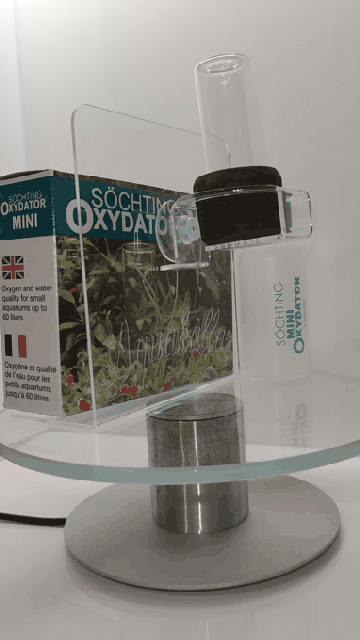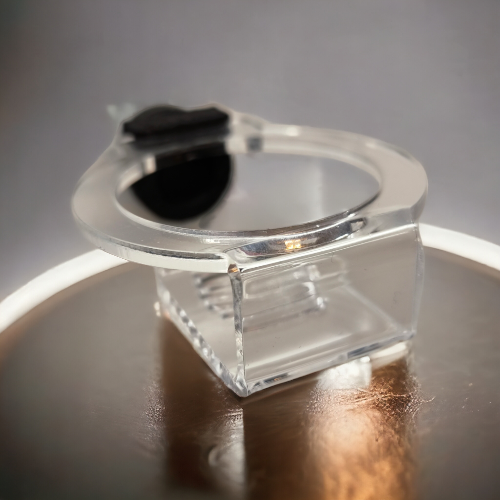Aquakallax
Aqua Callalx "Oxi-Hover"
Aqua Callalx "Oxi-Hover"
Couldn't load pickup availability
The "Oxi-Hover" is a well thought-out holder to attach your Oxidator Mini or "D" to the window.
Product Information
Hang your oxidizer in an easily accessible location.
Take out...fill up...put in.
 now also with strong magnetic attachment
now also with strong magnetic attachment
The well thought-out holder with a crystal-clear look and extra strong seat make the Oxi-Hover the number 1 accessory
We do not remove the oxidizer from the substrate because there is a fear that rot could occur under the oxidizer base. Because that definitely won't happen.
(see Oxi Facts)
We simply enjoy the easier operation. No fumbling around between plants, perhaps accidentally knocking over one or two decorative roots... and and and.
*some pictures show the original Söchting Oxidator Mini and "D", which is not part of the offer. The images serve to illustrate an exemplary intended use of the holder.

Oxi Facts
Söchting Oxydators use a patented process to produce normal and activated oxygen using an oxidizer solution (hydrogen superoxide) and special catalysts. In this way, you contribute significantly to the well-being of the aquarium inhabitants. Toxins are broken down and, with sufficient dosage, putrefaction and water cloudiness are prevented.
Short, simple explanation of how an oxidizer works.
.....without any complicated chemistry
The hydrogen peroxide solution is broken down into water and pure oxygen in the glass flask by the catalyst stones introduced. The increasing pressure in the glass flask pushes the solution through the small holes in the plastic lid.
Now comes the important part!!!
The emerging liquid must be catalyzed in order to release the desired oxygen. This happens when it comes into contact with the ceramic pot, which, like the catalyst stones, is a special mixture of clay and brownstone or manganese 4-oxide.
Part of the highly pure oxygen immediately goes into solution with the water, another part diffuses through the permeable pot (especially over the large area of the pot bottom).
Oxygen is called oxygen because it is ACIDIC!
That's why there is probably no cleaner place in the aquarium than under the base of an oxidizer.
Rot and decay can only occur if the oxidizer is left inoperative (i.e. empty) in the same place on the substrate for a long time.























